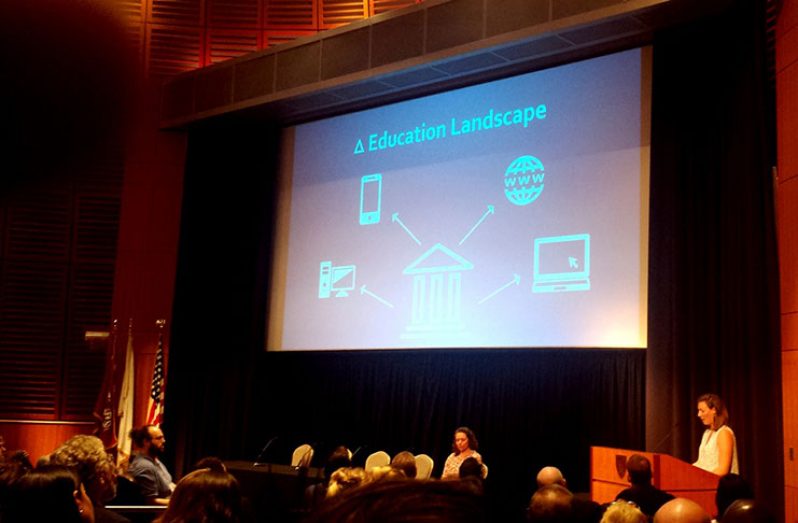-study shows large numbers pursuing online education
AS global access to the internet grows, there are a growing number of persons from low and middle-income countries who are pursuing educational courses online.
This is according to findings presented by Sara Stone, a planetary health education Fellow at the Planetary Health Alliance (PLA) of Harvard University in Cambridge, Massachusetts.
Stone presented her findings in a report titled, “International Collaboration in Planetary Health Education, Using Modern Tools and Platforms,” at the Harvard Medical School in Boston, Massachusetts, last weekend when the PLA met for its inaugural meeting.
According to Stone, with many options for the hosting of online courses, space is provided for planetary health to expand. She said that further innovations are stepping up to offer the courses in low-bandwidth settings or offline.
Stone informed the gathering that as of January 2017, over 3.5 billion persons were accessing the internet, a figure which she noted is over half of the global population. She said that the number varies across regions globally, with greater numbers recorded in North America and Western Europe.
She said that in 2016 an additional 10% of the total persons online, accessed the internet which signified an astounding 350 million more people had accessed the internet in the past year.
According to her, statistics indicate that approximately 2.7 billion are accessing the internet via smart phones while 2.2 billion use basic mobile phones.
“We are now in an unprecedented age of global connectivity “she said, noting that the landscape for traditional working model education has shifted.
Stone said that educators around the world now have opportunity to share content. She said that the University of Plymouth in the UK this month launched an online tool kit tabled for nurses.
As regards education , she said that while traditional education is becoming expensive and competitive , online access and the advent of creative comments licensing , which allows for work to be cited and freely shared , means that the knowledge that was once imparted to a limited few “is now accessible to anybody with an internet connection.”
She cautioned that this does not mean the “in-person learning” has been replaced but rather, it provides a space for institutions to move into the technology era and allows for access to persons who would not have had access to the internet in the past.




.png)









